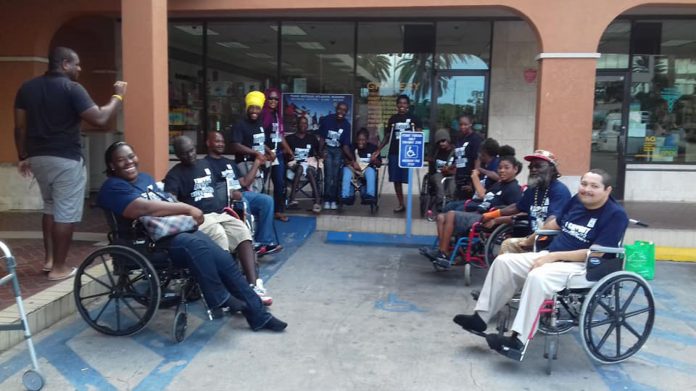By Shermain Bique-Charles
The head of the disability association in Antigua and Barbuda, Bernard Warner, has welcomed the latest Caribbean IMPACT Justice Project for the disabilities, saying that it’s a relief that a team of people other than the government, can look into the affairs of the disabled here.
The project recently published its “Report on Access to Justice for Persons with Disabilities in CARICOM Countries,” providing an overview of the United Nations Convention on the Rights of Persons with Disabilities, and its accompanying protocols as implemented by Antigua and Barbuda, and other CARICOM countries.
The report is also an expansion of the scope of the Project’s 2017 study, which was designed to review the issue of access to justice for persons with disabilities in OECS Member States only.
Warner tells Observer that although the twin-island state ratified the convention many years ago, it has never been really implemented.
“I think this is a fitting report. It is now four years since the Disability Act was taken before Parliament and it has not yet been brought into force as yet,” Warner added.
This 2017 study also provided the basis for the creation of the Project’s series of protocols and guidelines for persons within the justice sector who work with persons with disabilities.
With respect to the new study, one of the key features is the analysis of the results of the Project’s Access to Justice for Persons with Disabilities in the Caribbean Survey conducted in 2020.
Issues highlighted in the responses of persons who participated in the survey reveal continued deficiencies in the provision of access to buildings in which persons with disabilities do business, including courthouses; the need for amenities such as disability-friendly bathrooms; improved arrangements for transportation; and accommodation for the hearing and sight impaired.
Ultimately, the responses show a need for further interventions that would provide an opportunity for persons with disabilities to enjoy full and effective participation in society on an equal basis with others.
“Many of us are facing tremendous trials, discrimination, tribulations from the workplace and the community. This requires some political move. I am not optimistic about the move of the Minister of Social Transformation Dean Jonas, but I do have faith in the system to one day address the issue,” Warner explained.
IMPACT Justice hopes that this study will be useful for the information it provides policy makers, the general public and justice sector officials on the views of persons with disabilities on how they are treated generally, and by the justice sector.
“We know that there will be a team out there that is going to help in holding our government accountable to ensure that justice, equality and equal rights for persons with disabilities is addressed,” Warner said.
In addition, it is hoped that the findings of the report will bolster regional governments in their resolve to enact legislation setting out the rights of persons with disabilities in accordance with the UN Convention.
In the near future, the Project will publish another report which will analyse cases taken to the UN Committee on the Rights of Persons with Disabilities to show how the Committee has addressed the myriad of impediments faced by persons with disabilities in accessing justice.
“We really want to see more discussions and more consultation and how this report can be used as a step in mitigating some of the challenges people with disabilities are facing here,” he added.
In addition to this work, the Project has also undertaken a study on Access to Justice for the Elderly in CARICOM Countries which it hopes to complete in the coming months.

